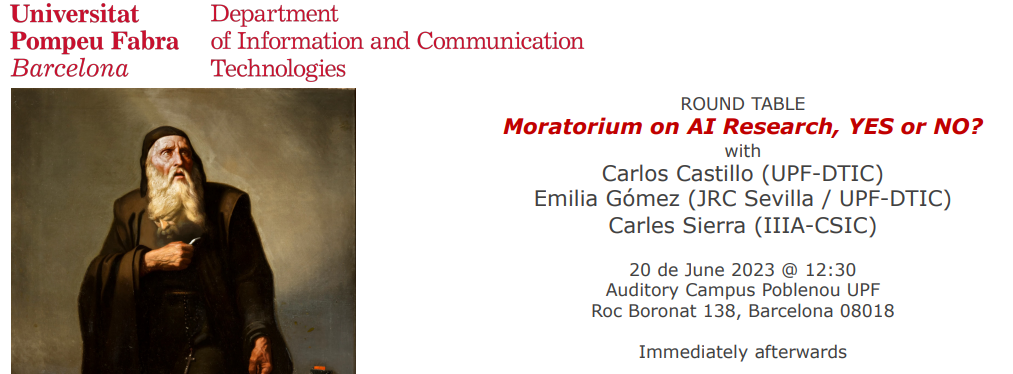The second Maria de Maeztu Strategic Research Program (CEX2021-001195-M) of the Department of Information and Communication Technologies (DTIC) takes place between 2023 and 2026. The website for this program is under construction. You can find some details in this news.
The first María de Maeztu Strategic Research Program (MDM-2015-0502) took place between January 2016 and June 2020. It was focused on data-driven knowledge extraction, boosting synergistic research initiatives across our different research areas.
Martins Dias G, Bellalta B, Oechsner S. Using data prediction techniques to reduce data transmissions in the IoT. 2016 IEEE 3rd World Forum on Internet of Things (WF-IoT)
Martins Dias G, Bellalta B, Oechsner S. Using data prediction techniques to reduce data transmissions in the IoT. 2016 IEEE 3rd World Forum on Internet of Things (WF-IoT)
Part of the data in the Internet of Things (IoT) will be generated by wireless sensor nodes organized in Wireless Sensor Networks (WSNs). However, these nodes are mainly designed to have low costs, which implies constrained memory and energy supplies, and does not permit high data transfer rates. Despite that, modern applications rely on the knowledge acquired by WSNs to trigger other systems and sensed data has become critical to avoid economic-and living-losses. Therefore, it is important to optimize data transmissions in WSNs to support more wireless sensor nodes and a higher diversity of sensed parameters. The thesis “Prediction-Based Strategies for Reducing Data Transmissions in the IoT” extends a paradigm that exploits WSNs to the utmost: data that can be predicted does not have to be transmitted. We simulated and tested a self-managing WSN architecture in the cloud to adjust the sensor nodes' sampling intervals. For the future generations of WSNs, we designed a theoretical model for estimating the efficiency of prediction-based data reduction methods in WSNs. It will permit a strict control over the quality of the reported data without being harmed by the adoption of a higher number of sensor nodes; hence, collaborating to the IoT's growth.
Keywords: artificial intelligence, wireless sensor networks, data science, internet of things
Related Assets
Department of Information and Communication Technologies, UPF
Grant CEX2021-001195-M funded by MCIN/AEI /10.13039/501100011033

Department of Information and Communication Technologies, UPF
- Àngel Lozano - Scientific director
- Aurelio Ruiz - Program management




